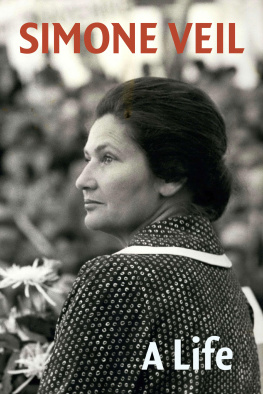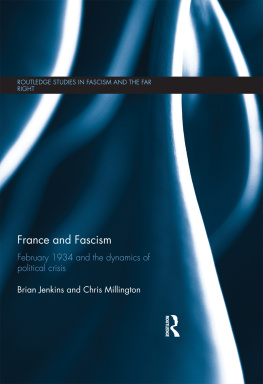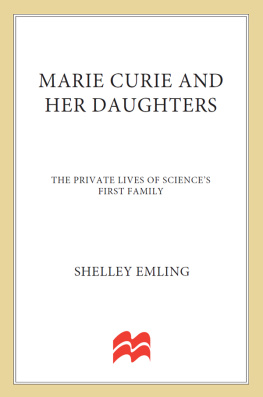THE NMIROVSKY QUESTION
THE NMIROVSKY QUESTION
The Life, Death, and Legacy of a Jewish Writer in Twentieth-Century France
SUSAN RUBIN SULEIMAN

Copyright 2016 by Susan Rubin Suleiman.
All rights reserved.
This book may not be reproduced, in whole or in part, including illustrations, in any form (beyond that copying permitted by Sections 107 and 108 of the U.S. Copyright Law and except by reviewers for the public press), without written permission from the publishers.
Yale University Press books may be purchased in quantity for educational, business, or promotional use. For information, please e-mail (U.K. office).
Excerpts from Irne Nmirovsky, Le vin de solitude, are quoted with the permission of Albin Michel Publisher, Paris.
An earlier version of appeared in Yale French Studies, no. 121 (2012).
Set in Janson Text type by Integrated Publishing Solutions.
Printed in the United States of America.
Library of Congress Control Number: 2016941798
ISBN 978-0-300-17196-9 (cloth : alk. paper)
A catalogue record for this book is available from the British Library.
This paper meets the requirements of ANSI/NISO Z39.48-1992 (Permanence of Paper).
10987654321
To Emma, Pablo, Alexander, and Nessa
To ask oneself about Jewish identity is already to have lost it. But it is to hold on to it still, for otherwise one would not be asking. Between that already and that still is located the limit, stretched like a tightrope on which the Judaism of Western Jews ventures forth and takes its risks.
EMMANUEL LEVINAS
What have I in common with the Jews? I dont even have anything in common with myself.
FRANZ KAFKA
Admittedly, every man is other than himself, and in fact being human consists in that possibility of being outside and beyond ones self.... But the Jew is doubly absent from himself, and in that sense one could say that he is the human being par excellence.
VLADIMIR JANKLVITCH
Contents
Photographs follow
Note on Translations and Citations
UNLESS OTHERWISE STATED ALL translations from the French are mine. For Nmirovskys works I generally give page references to the French texts, citing the original in a note. A number of her novels have been ably translated by Sandra Smith, whose translations I have consulted in doing my own. The specific works by Nmirovsky that I mention are listed in the bibliography, along with the titles of published English translations where available; the page references are to Nmirovskys Oeuvres Compltes in two volumes, edited by Olivier Philipponnat (abbreviated as OC).
In first citing the titles of Nmirovskys works, I give the original French title followed by English in parentheses (in italics if an English translation exists). After the first mention, I generally cite the title in English or French, not both.
THE NMIROVSKY QUESTION
Introduction
A Writer Reborn... and Debated
FALL IS THE SEASON for the big literary prizes in France. Winning one guarantees an author visibility and sales, sometimes even best-seller status. On a November afternoon in 2004 Denise Epstein-Daupl had just turned on the radio in her kitchen when she heard the announcement: the Renaudot Prize, one of the top fiction prizes, had been awarded to Suite Franaise by Irne Nmirovsky. Denise, who would be turning seventy-five the next day, sat down, feeling dizzy. Irne Nmirovsky was her mother, whom she had last seen more than sixty years earlier. Arrested by French police on July 13, 1942, in the village where the family had taken refuge at the outbreak of the Second World War, Irne was sent to the camp at Pithiviers where Jews were being assembled for deportation. Two days later she was put on a transport to Auschwitz, where she died a month after her arrival.
And now this prize. No such prize had ever been awarded to a dead author, let alone for a book written half a century earlier. Suite Franaise was the novel Nmirovsky had been working on when she was arrested. Unfinished, it had never been published, but the manuscript had survived in a suitcase of papers and photographs, the only inheritance her daughters could claim of her. Among the papers in the suitcase was a notebook filled with Nmirovskys cramped handwriting, which they could not bear to read for yearsthey thought it was her diary. Sometime in the 1970s, Denise told me She and her younger sister, Elisabeth, thought about showing it to a publisherafter all, their mother had been a well-known, much-lauded novelist before the war. But Elisabeth, who was making a career as a translator and a rising young editor in Paris, worried that the novel was unfinished and not quite good enough to publish: Nmirovsky had written it quickly and had had no chance to revise or polish it.
Denise did not insist. It was not until many years later, after Elisabeth herself had died, that Denise went back to her earlier typescript, retyped it on her computer, and showed the text to an acquaintance, the writer Myriam Anissimov, who had published well-regarded biographies of Primo Levi and Romain Gary. Anissimov read it, loved it, and showed it to her editor, Olivier Rubinstein, who was editor in chief of the Denol publishing firm. He called Denise immediately. Within a year Rubinstein had published the novel, with a preface by Anissimov and an appendix containing excerpts from Nmirovskys wartime journal and correspondence, which told the tragic story of her final years in Nazi-occupied France. Born in Kiev in 1903, Nmirovsky had been living in France since she was a teenager and wrote all her works in French but had never obtained French citizenship. Under the Vichy regime she was classified as a foreign Jew, the most vulnerable kind of foreigner (and of Jew) at the time. Her husband, Michel Epstein, also an immigrant from Russia, suffered the same fate as Irne: arrested in October 1942, he was sent to the camp at Drancy on the outskirts of Paris and deported a few weeks later. Michels younger brother Paul, his older sister Sophie, and his older brother Samuel and Samuels wife were also deported from Drancy that year. None of them returned.
In a way the prize awarded to Nmirovsky posthumously was also her daughters, since without Denise Epsteins efforts the book would never have seen the light of day. I had the privilege of interviewing her several times before her death in April 2013 at the age of eighty-three. A devoted and much-loved mother and grandmother as well as something of a celebrity in her own right in the last decade of her life, Denise Epstein would still choke up on occasion when speaking about her parents. She was twelve years old when they disappeared from her life, and it was palpable that she never fully got over her loss. When she spoke about Nmirovsky, whether in published interviews or in private conversation, she usually referred to her as Maman.
Was the awarding of the Renaudot Prize a compensatory gesture, a way to assuage Frances continuing feelings of guilt about its wartime collaboration in the Nazi persecution of Jews? Or was Suite Franaise a brilliant novel miraculously saved from oblivion, the work of an important novelist whose untimely death put an end to what would have been a major postwar career and who now had a chance to become known againto be reborn? Plausibly, both of those claims are true. The shameful treatment of Jews by the Vichy regime is still a sore point in France, which prides itself on being the homeland of the first Declaration of Human Rights (in 1789) as well as the first country in Europe to grant full citizenship to Jews (in 1791). And if the victim of persecution was a well-known writer in a country that still venerates its writers, the shame is redoubled. But
Next page







